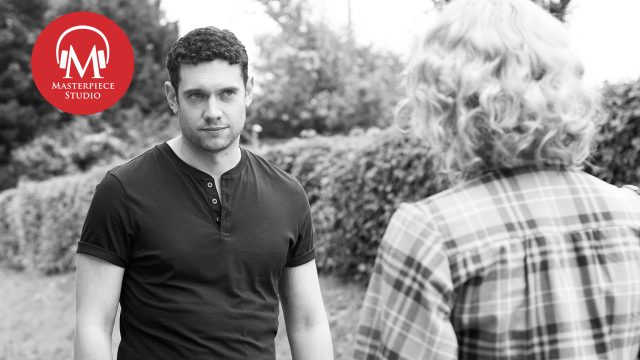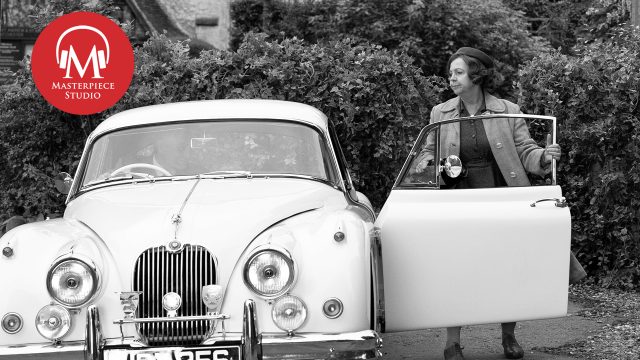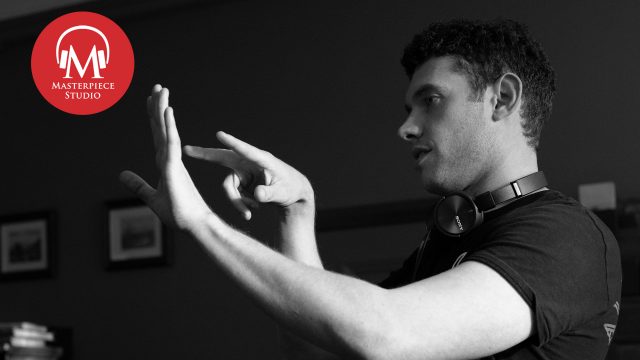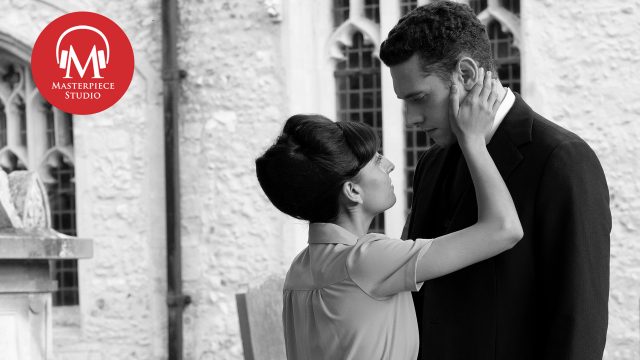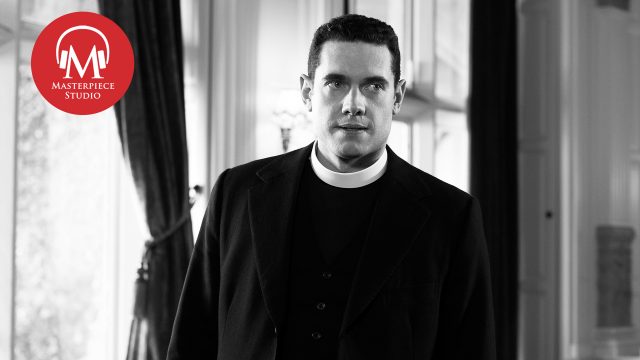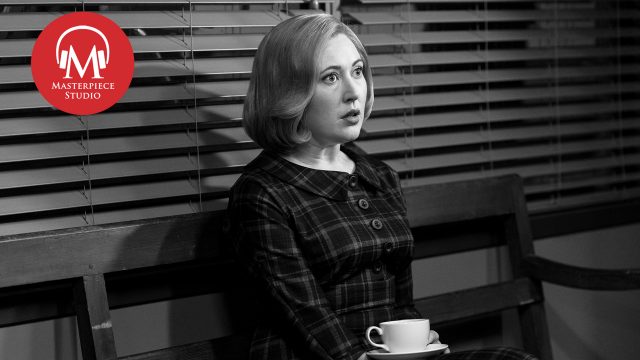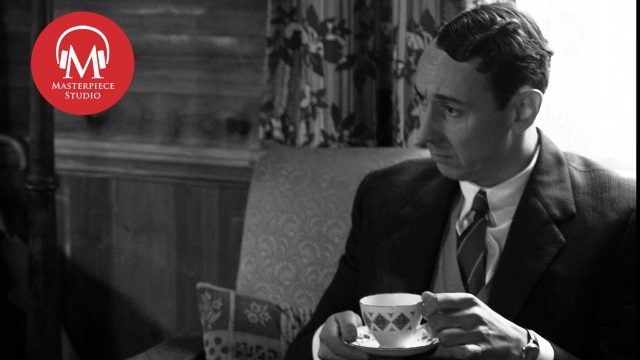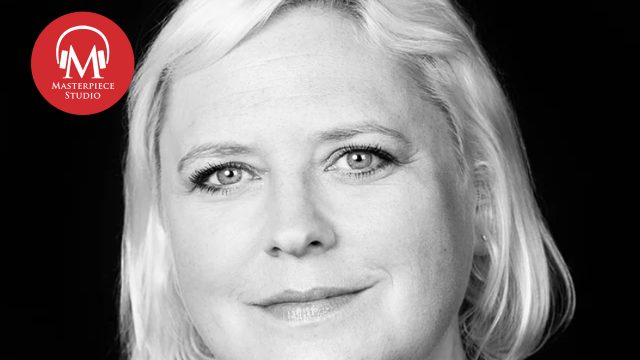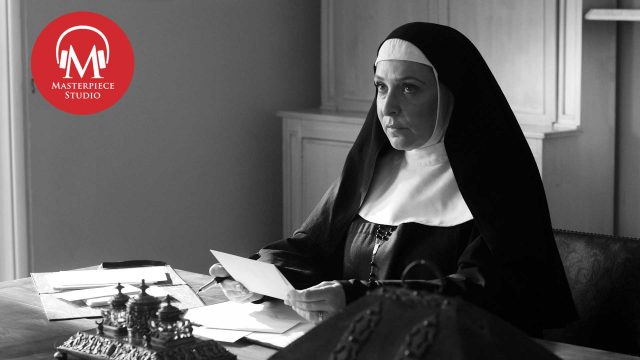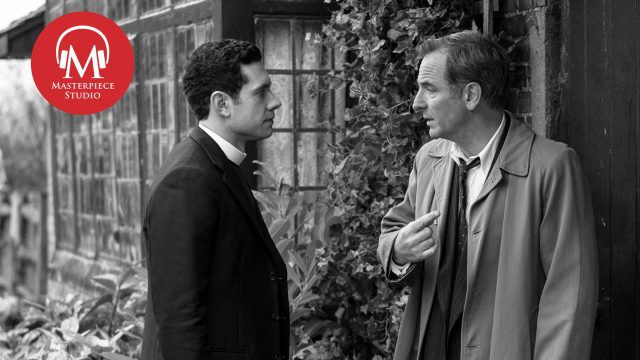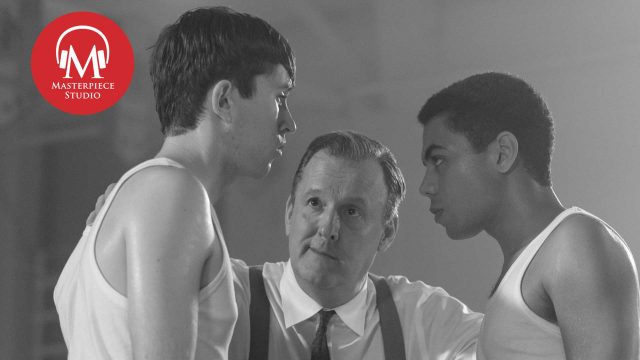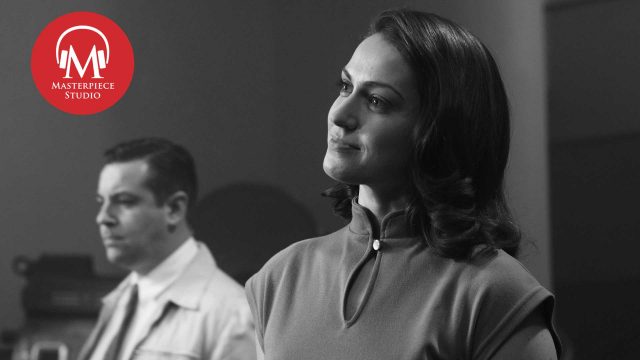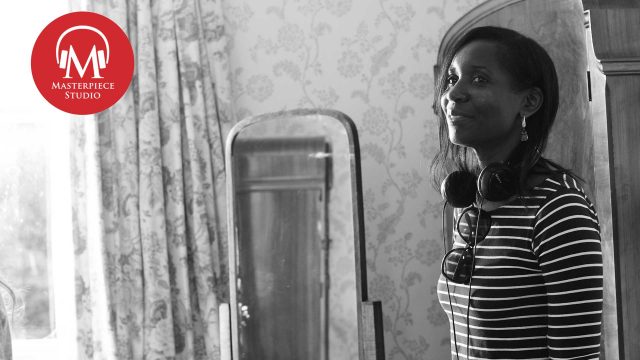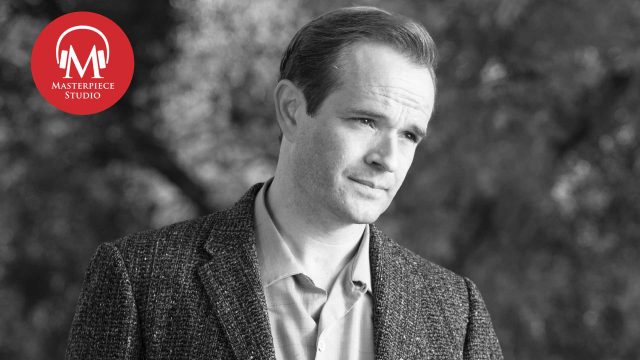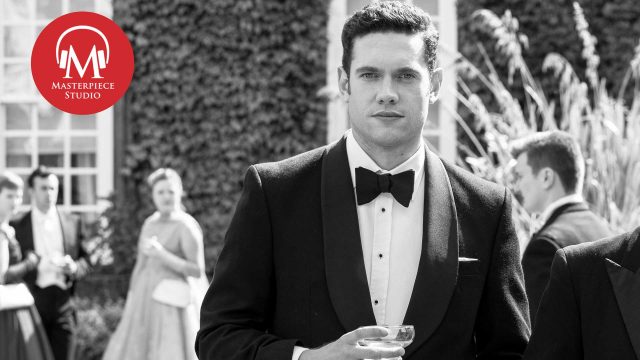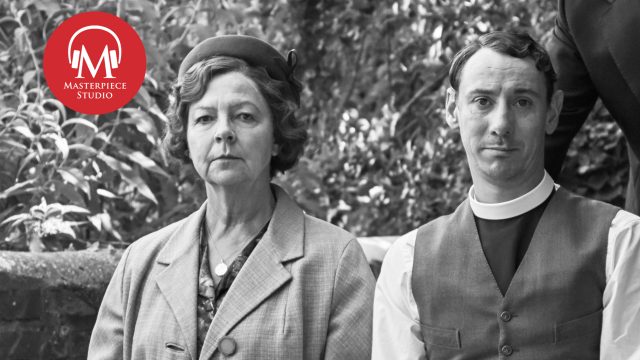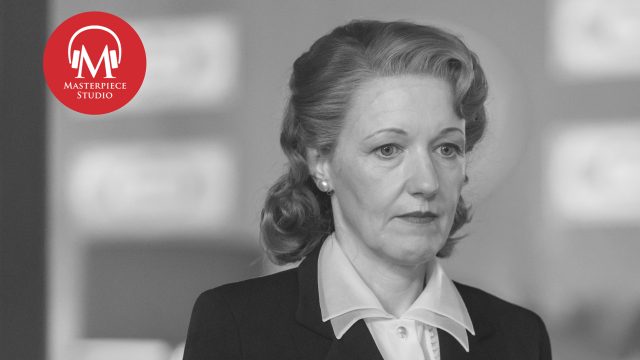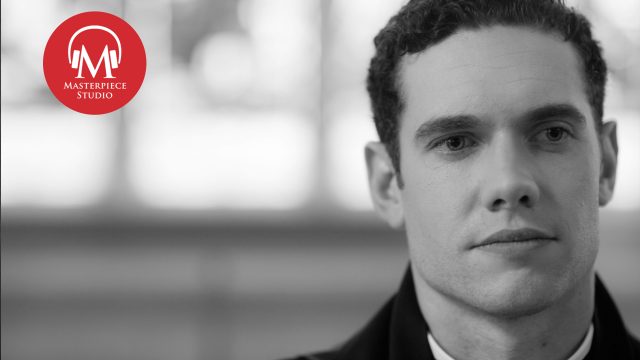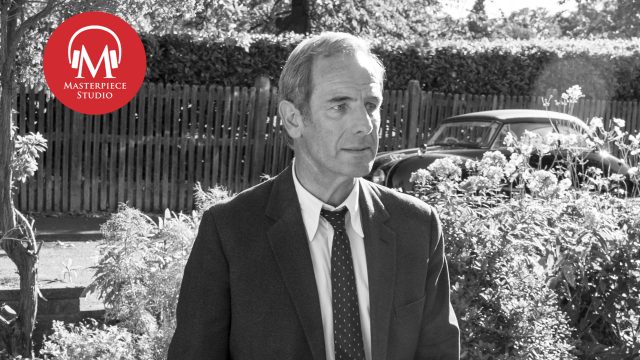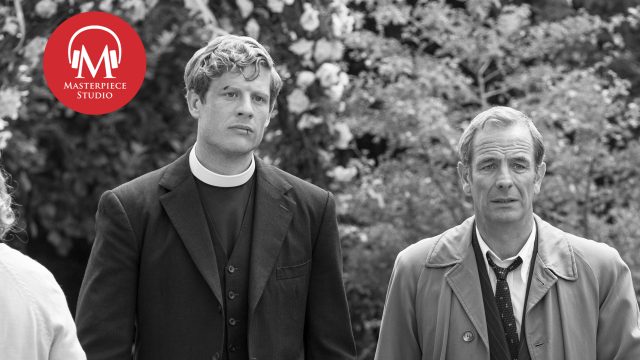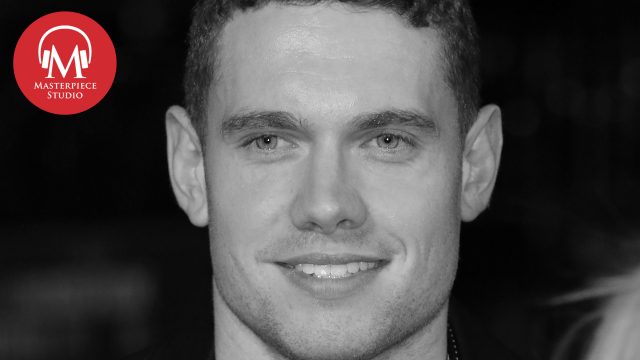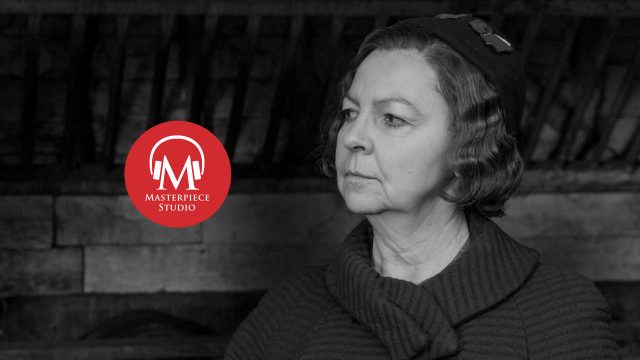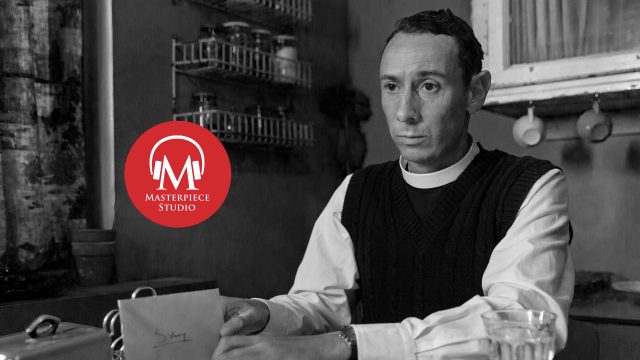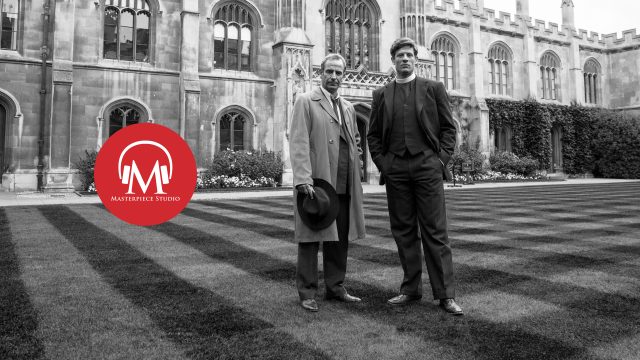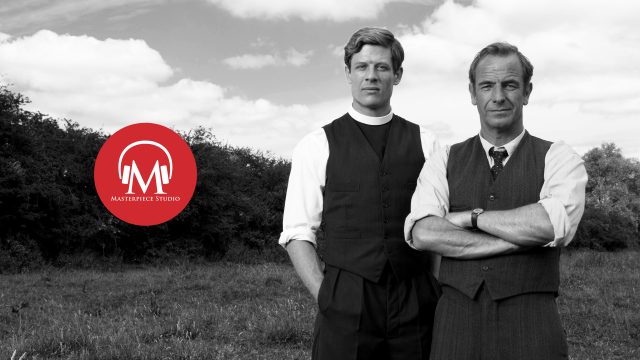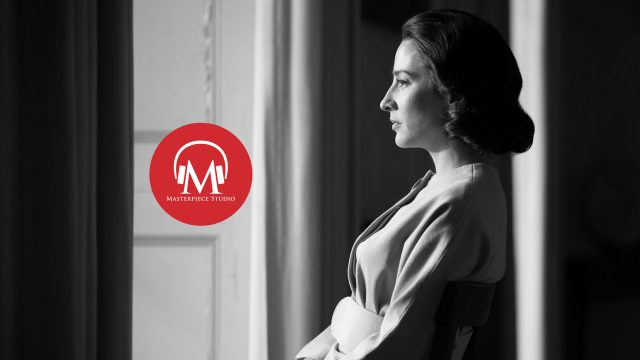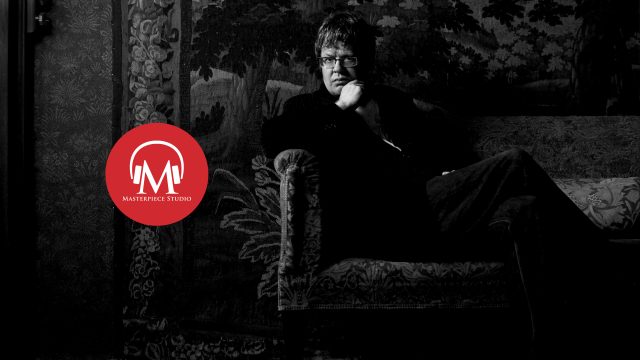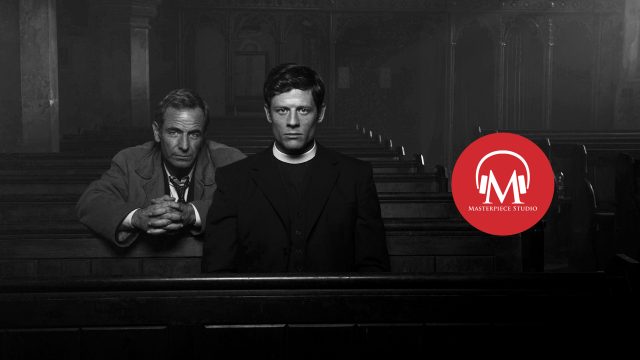There’s a rotating cast of murderers — and murder victims — on every episode of Grantchester. But where do the actors come from who populate the Cambridgeshire rogues’ gallery? Longtime series casting director Alex Irwin reveals how she casts a show.
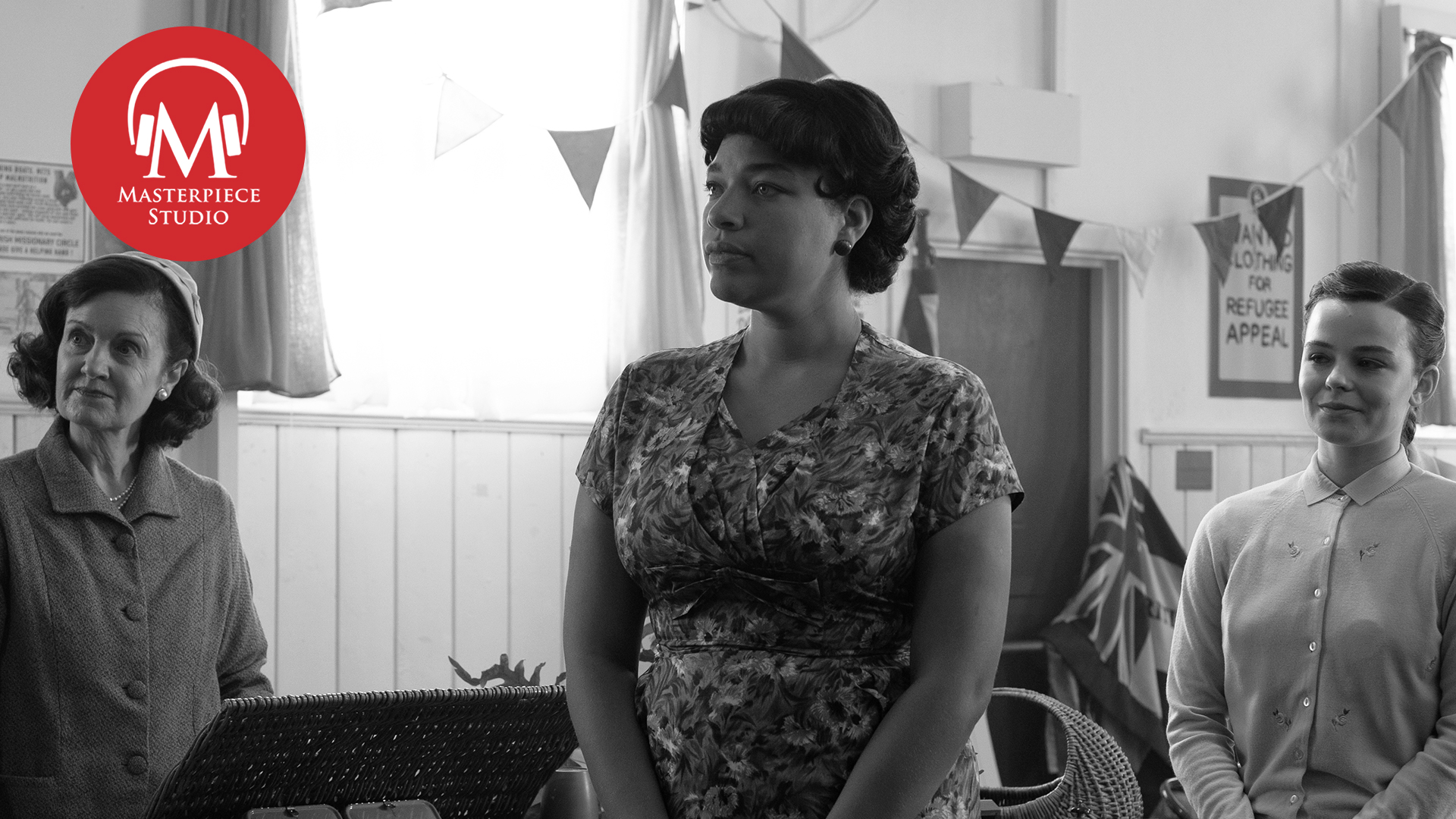

Casting Director Alex Irwin Makes Murderers Every Episode
Released 27:25
Download and subscribe on: iTunes | Spotify| RadioPublic
Transcript
Jace Lacob: I’m Jace Lacob, and you’re listening to MASTERPIECE Studio.
In a mystery series like Grantchester, it can be difficult to keep track of all the new characters who drift in and out of view every episode.
CLIP
Grace Eleanor has become positively fascistic about this event.
Kathleen Poor Eleanor. Her husband’s quite deaf, you know.
Grace She says the entire thing’s driving her to drink.
Daniel What doesn’t drive her to drink?
Jace If guest actors are not murdered, they’re often murderers themselves — or at the very least, likely suspects — making the list of part-time villagers a rather long one to tally up each week.
CLIP
Eleanor Ladies and Gentlemen! Firstly, let us give thanks to Grace who insisted we carry on today in memory of her wonderful husband. Now, if you’d like to make a bid, please write your hopefully extravagant donation on these slips of paper and put them in here. Er write neatly please. It’s all for the benefit of the refugees.
Jace Add in new regular characters like the charming Bonnie Evans, and longtime viewers might count themselves right worn out trying to remember who is who.
CLIP
Bonnie We need a thing.
Will Well, you’re gonna have to be a bit more specific than that.
Bonnie No, you know, you know when you’re in the army and you make like a plan…
Will Yeah, an operation.
Bonnie Exactly! Operation: get Cath and Geordie back together ‘cause they’re meant to be and it’s making them miserable that they’re not.
Will That’s catchy.Jace All of that is thanks to Grantchester casting director Alex Irwin, who helps the series populate its episodes with new faces. She joins us to explain how she does what she does, and why some MASTERPIECE favorites from other titles continue to repeatedly pop up here and there throughout the Cambridgeshire countryside.
Jace And this week we are joined by Grantchester casting director Alex Irwin. Welcome.
Alex Irwin Hello.
Jace Before we get into Grantchester, I want to just step back a little bit. You got your start in the industry on the production side of things. How did you first make that leap into the casting side of the business?
Alex And so I, I was working on a children’s TV drama called The Dumping Ground, which was based on a really popular children’s book. And it was a really popular show here. And because I always thought I wanted to work in TV production, but the reality of the production office wasn’t really quite as exciting as I thought it would be. You know, it’s essentially an office job with long hours organizing other people’s fun, essentially. And the casting director on that show was a lady called Sue Needleman, and she would come to the production office — and, you know, in my memory, she’s wearing pink stilettos. But she maybe didn’t, but she was so glamorous, always had heels on, and she would just trot in. And she was always so happy. And I thought, ‘That’s what I want. I want to be her.’ So soon after that, I moved to London and got in touch with a casting director called Catherine Willis, who’s still a good friend. She does amazing shows. She’s queen of comedy here, and worked for her for a bit. And she shared an office with Kelly Valentine Hendry and Victor Jenkins, they used to have a company together. So yeah, I then hopped desks and started working for them. So yeah, it was quite an easy transition. It was weird because it’s not a job that people really know that you can do here. And as such, there’s such a shortage of casting assistants here. So yeah, I’ve just got really lucky, right place, right time and the fact that I got to work for Kelly and Victor as well. So, yeah, quite, quite an easy transition.
Jace I mean, you’re saying that —for for listeners who don’t know what a casting director does, then how would you describe the sort of nuts and bolts practical process of casting?
Alex I think it’s quite a linear process. We get a script. Usually, I mean, for Grantchester, for example, we try and do straight offer per episode of someone that’s got a bit of profile. So for that we would pick a character is probably the best character and do a list of ideas, check their availability and then discuss who could play that part. Other shows as all of your leads might might be, might come from lists. After that, it’s. It’s auditions. We will meet people in the room. Yeah. I mean, I guess as a casting director, it’s your job to present a good selection of different actors for each role to a director. I mean, is it definitely very collaborative but The director would usually make their picks through, then discuss with the execs, make a choice, make an offer, negotiate a deal. In the UK we do all of the financial negotiations. I think in the US sometimes casting directors don’t. But that’s a big part of our job is going back and forth with agents negotiating money, bill, you know, all of those, all of those things. And that’s it, really.
Jace I mean, you mentioned, you mentioned being in the room. I’m curious, has self taping changed the game for you at all? Can you still get the same sense of an actor in a role via tape that you can when they’re physically in the room with you?
Alex Well I like self-tapes if we have a character who, for example, is a young person say, I don’t know, say a 20 year old, because we can see, I can get all of the new graduates from all of the drama schools to self-tape. Whereas if that was in the room, it would take me, you know, a whole week of auditions to actually see everybody. So I really like self tapes for being able to see lots of people. But I have to say, like from just a project that I’m doing right now because it’s the first project that I’ve been back in the room, because everything was on, I mean, for example, Grantchester seasons six and seven, both were cast completely over Zoom, which worked very well. But it’s amazing to be back in the room. But it’s funny what you said about getting a sense of people on self tapes, because the people that we’ve loved on self types and we’ve recalled to meet the director in the room just haven’t translated in the room and vice versa, people that did okay types and we thought maybe we’ll see them they’ve been amazing in the room it’s it’s and ultimately that person is going to be on screen so if they’ve done a good self -tape then hopefully they would be, you know, great on screen. But also my director currently has said that the problem with Zoom and self-tapes, not meeting people is you meet them for the first time on set and then you’ve very quickly got to create this great working relationship, whereas meeting in the room, You’ve already established that and you’ve figured out, ‘Yeah, I like this person I could work with them.’ So yes, self-tapes are great, but I don’t think yeah, I don’t think there is obviously as good as being in the room and meeting people, but it is, they are great for seeing lots of people if you’re doing a big search for example, and for children. And the amazing thing is like children can all self-tape now, whereas before a couple of years ago you would have to hold big open auditions and just see hundreds and hundreds and hundreds of kids to to find one great one, whereas everybody just knows how to self-tape now, which is really good.
Jace You’ve been on Grantchester since Series two. What did you make of the show initially and how do you see it as having changed?
Alex Yes. It’s it’s such a such a wonderful show. It’s so well-written. And it kind of catches you, Grantchester, because you think that it’s this warm and cozy drama, which it is in many ways, but it’s really dark at the same time. There’s so many dark themes of, you know, suicide, and all sorts, obviously, there’s a murder every episode. So murder is pretty as dark as it gets.
CLIP
Geordie Larry…
Larry Boss.
Geordie Round up the charity ladies for questioning.
Will Geordie? God’s speed.
Eleanor He was a wonderful man.
Natalie Wonderful.
Daniel Some of the time, at least.
Eleanor Do anything for anyone.
Kathleen Absolutely anything.
Daniel For a fair price.
Eleanor He fixed your kitchen light.
Kathleen Didn’t ask for a penny.
Eleanor Let Natalie lodge at his house for gratis.
Natalie Well, two shillings a week.
Eleanor Was it a heart attack, Inspector?
Kathleen My husband had a heart attack.
Eleanor Keeled right over in the gooseberry patch.
Daniel Stone cold dead.
Kathleen Gooseberries were never the same after that.
Geordie Right. Thank you! Everybody out. Let us do our job.
Alex And yeah, in terms of how it’s changed, and I think the main thing would just be kind of diversity because I think early seasons we were very conscious of casting, of being true to history. You know, would this person, would they have worked in the police at this time, like would a disabled person would have been accepted into the police force? Would this demographic of person, you know, be a Dean at Cambridge University, for example? So I think we were more conscious then. However, now it’s, you know, diversity and inclusion is more important. So where I feel like we’re freer in casting now.
Jace Obviously there’s been turnover in the cast, as well.
Alex Yeah, we’ve got a new, new vicar, of course, who’s fitted in seamlessly, I think. I mean, James is just such a well-loved character, Sidney obviously. And so that was a massive challenge to find someone that would, could take over and, and keep the show running. But I think Tom’s just been excellent and yeah, really, really pleased that it’s kept going this long.
Jace And the first few seasons of Grantchester featured some familiar faces in James Norton, Robson Green, Tessa Peake-Jones and also lesser known actors at the time who’ve now since become stars like Morven Christie and Al Weaver. What do you think of what Morven and Al and others who’ve come through grantchester have achieved?
Alex Well, I mean, it was Kelly Valentine Hendry that cast those because I joined after the first season. And, you know, she’s well, she’s a terrific casting director, so she casts good actors. So, you know, Morven and Al, they’re just excellent actors. Morven has gone on to lead shows here, Al is always, popping up in amazing films. So yeah, it’s just testament to Kelly’s casting and her taste in actors that, you know, that she’s cast good actors, so they’re bound to go on and do great things. And as I’m sure Tom will as well. And yeah, it’s great to see actors who were not famous as well that we’ve cast, you know, as young actors like Kit Connor or Emma Corrin. You know, we cast her, I can’t remember what season it was. And then, and she’s a star now. So I find that really exciting, just seeing where people go.
Jace Before this next question, a brief word from our sponsors…
In terms of sort of when we look at TV, we think of a writer, we think of the director in terms of the creative vision. And where does a truly stellar casting director sort of fit into that rubric? How important is casting in terms of bringing that vision to life?
Alex Yeah, I think I think pretty important. Because ultimately the writers have written characters and it’s actors are going to be playing these characters. So I think it’s hugely important. Ultimately the director is going to pick and he’s going to direct them and give the performance. But yeah, I think the casting director is hugely important in terms of translating the script.
Jace I mean, you have casting duties on a lot of productions, juggling, let’s say, Grantchester and Ghosts, for example. Do you keep an actor in mind for multiple roles based on your experience of working with them? I mean, I’m thinking specifically of the always amazing Charlotte Ritchie, star of Ghosts, who joined Grantchester in episode two of this series.
Alex Yeah. I mean, I think you definitely have actors that you love as a casting director. You don’t really you don’t ever want to be the type of casting director that casts the same people all the time. Sometimes you watch a TV show, you know who’s cast it because it’s got the same actors in. So, yeah, I mean, I usually would take every character as it is. I don’t really have a list of actors that I want to cast. But when you read in a script, people will definitely pop into your head and you would think, ‘Oh my gosh, they play this role so well.’ Charlotte of course, she’s just so, so good and we were so lucky to get her. But had I not, had we not, well, Kelly cast Ghosts, series one. So had we not cast Charlotte in Ghosts you know she she still would have been somebody that that we would have thought of for Grantchester. So it’s not that, you know, we like to cast the same people again and again, but, you know, if somebody is good, you certainly have a preference towards them and aim to cast them where you can.
Jace I mean, for example, episode one of Grantchester this season features Anna Wilson Jones and Emma Cunniffe as sisters Adele and Maude Fitzgerald. You worked with Anna on Harlots and Emma on Unforgotten, so is it a coincidence that they turn up here in these guest roles, or is there some equation or thought process on your end that enters the casting sort of decision? Is there a sort of mental math that you do that you say, ‘Actually, I do know these two actors would be great, let’s try and get them.’
Alex I think with that episode, I mean, they Anna and Emma were both straight offers and they both came from I mean, we did lists that we, you know, discussed with the execs. But yeah, I guess they were just the most suited for those characters as written in the scripts. I’m a huge fan of both of them, both terrific actresses. So yeah, we were lucky to get them.
CLIP
Will When was the, the last time that you heard from Edmund?
Adele He sent a telegram to say he was coming home for the wedding. He wanted us to send the airfare. We didn’t have the funds.
Maude He must have come overland instead. It was probably too much for his heart.
Adele It’s a family thing. Fitzgerald men are notoriously short-lived.
Maude The police think he cut across the fields and came in through the back gate. And he took a turn-
Adele Oh Maude. Do stop going over it!
Maude Sorry.
Jace Episode four of this series features a slew of guest stars as a body is discovered before a church fundraising event and everyone’s secrets start spilling out. When you’re casting a group — the suspects, as well as the killer, here — how important is the overall group dynamic? How the actors play off each other? Does that complicate the casting process at all?
Alex Is is really tricky question because we would never audition, I mean, we do do chemistry reads sometimes. But in these episodic roles, we never we never get the actors together. So it’s hard to know if they’re going to gel. I suppose you just have to do the best you can of, you know, that was a really fun episode to cast because all of these women are completely different. They didn’t necessarily need to all go together or gel together because the women kind of all were, you know, having little digs at each other anyway. So it’s not that they needed to, you know, all kind of fit together, as it were.
Jace I mean, I am fascinated by having to cast something like a family, because you’re concerned not just with the look of them and making them look like a family unit, but making it feel lived in as though these people have a day to day relationship that is grounded in reality.
Alex Of course. And yeah, I can’t think of a project that I’ve worked on where we’ve cast a family, and with that we’ve had the opportunity to get them all in the room pre-filming to do chemistry because often you know the established actors who wouldn’t ordinarily audition. So it is a risk I guess you know if you’re straight offering actors with profile and building a family and then they get on set and they just they don’t feel or they don’t feel like they have an affinity with each other. It’s tricky. But I think for, you know, for Grantchester one way casting groups and there’s so many different ways that it could go. You know, casting. Many different people. You just have to. I guess you just have to hope that they. That it works.
Jace This is perhaps more specifically tied to Grantchester than, say, casting a Scandinavian Viking in the The Last Kingdom or something. But I am curious, what are you looking for specifically when you’re casting a murderer? Is there a duality or a certain quality you’re looking for in that situation?
Alex No, I don’t think so. Because in Grantchester, it’s always the person that you least expect. Right? So usually in Grantchester, it’s the murderer is is somebody that’s that’s also a victim. So I guess, you know, to say that we would be looking for someone with murderous qualities, it would essentially ruin the episode because we don’t want the audience to to ever, you know, guess who the murderer is. And everybody’s a red herring in Grantchester, aren’t they? So I suppose everybody has to have, has to have an element of, oh, ‘Could it be them?,’ and you also, you know, feel like they could be a victim also. I mean, I suppose the dramas that are based on real murders, for example, then yes, sure. You’re going to have to, you know, find an actor that you can go find that darkness. I mean, ultimately, you know, the actors that we cast, we always put them through their paces with. You know, they’ve to got to find that darkness. Unless it’s someone that’s, you know, murdered somebody by accident.
Jace But you want that tragic, tragic quality.
Alex Sure, yeah, yeah.
CLIP
Will You had a good idea who killed him.
Geordie You confessed out of guilt.
Grace But I am guilty in a way, aren’t I? A judge will look kindly on her. After what he did…won’t he? I should’ve done something.
Will Neil’s to blame for all of this.
Grace But if I’d just, just done something.
Jace You mentioned DEI before. I mean, Grantchester is an incredibly inclusive production. How do you see your role in that inclusivity specifically?
Alex Yeah. We are completely colorblind on Grantchester now, and it’s across the board. It’s the writers, it’s executives, directors. Everybody is very much, you know, nobody’s trying to push for the you know, sometimes something might not be historically accurate for, you know, Cambridge in the 1950s. But no, very much every single role we’re looking to to cast diverse actors and also now disabled. Yeah, we’ve always tried to cast disabled actors, but certainly more now than ever, every single role, we’re wondering, you know, well, where could we get a great, you know, cast a great disabled actor? So, yeah, definitely. I would say, you know, of all the shows that I work on, this is definitely one of the most inclusive and the one that really every season pushes for diversity and inclusion. And yes, the casting director’s role, yeah it’s massive. If you don’t give good options, then those people aren’t going to be cast. I mean, the problem is, is, you know, with diversity, I mean, actors now in their twenties and thirties, we’ve got so many great, fantastic BAME actors, it’s so brilliant. Disability — there’s just there’s never been the opportunity before. And so the reason we don’t have this plethora of actors and so anybody that’s disabled and is a good actor is working. So that’s what I’m finding at the moment. I know so many brilliant British disabled actors, but they’re all busy because I feel like everybody, I mean, it’s yeah, it’s, it’s sad that it’s taken this long, but yeah, that certainly every production is, is looking to be more inclusive, which is fantastic.
Jace I mean, those conversations are happening at the sort of production companies, studio network or streamer levels and within society at large. But to me as a casting director, you have a significant amount of power to achieve change in terms of inclusion. Do you see yourself as wielding cultural power or is there a responsibility that goes along with that?
Alex Yeah, I think there is a huge responsibility. But ultimately, we often, if a show, you know, the final cast have not been culturally diverse or, you know, not just not diverse in general, often casting directors get the blame and it’s is tricky because we try our hardest in every production and every role to to to give a selection of actors different ethnicities, different disabilities. And sometimes the final cast doesn’t end up being as you’d imagined or you’d hoped. So I feel like you…yeah. There is a big responsibility. We try our best and we show a selection, we’re always pushing, but sometimes the final cost doesn’t end up how you would hope, because, you know, maybe a director has got somebody in mind already. So, yeah, it’s a big responsibility and I certainly try my hardest. And yes, sometimes it pays off, sometimes it doesn’t. But no, I think it’s great. And I think it is really exciting.
Jace Finally, what’s the one thing you wish actors would avoid doing during an audition? What’s that sort of one casting director bugbear that gets under your skin?
Alex I would say when they change the lines, because it’s…certainly with period dramas, you know, the language is is written that way for a reason. And often I think young, particularly young actors do paraphrase and sometimes modernize, you know, and will add ‘like,’ and, ‘you know,’ I find that frustrating because, you know, I’m doing it now. And I the words are right there. So you’ve literally got one job. Just learn. Learn the lines. Yeah, but I wouldn’t say I wouldn’t say actors annoy me at all.
Jace So don’t insert, ‘like’ into Shakespearean iambic pentameter.
Alex Everything. Exactly.
Jace Alex Irwin, thank you so very much for joining us.
Alex Thanks so much.
Jace Mrs. C is the heart of the Grantchester Vicarage — but a cancer diagnosis has taken some of the usual bluster out of her sails this season.
CLIP
Mrs. C I don’t need a fuss.
Will It’s all gonna be okay.
Mrs. C I’ve decided. I’m not gonna go through with the treatment.
Jace Fan favorite Tessa Peake-Jones returns to the podcast August 7.
MASTERPIECE Studio is hosted by me, Jace Lacob, produced by Nick Andersen and edited by Robyn Bissette. Elisheba Ittoop is our sound designer. The executive producer of MASTERPIECE is Susanne Simpson.
Grantchester Podcasts 30 More Podcasts
MASTERPIECE Newsletter
Sign up to get the latest news on your favorite dramas and mysteries, as well as exclusive content, video, sweepstakes and more.











